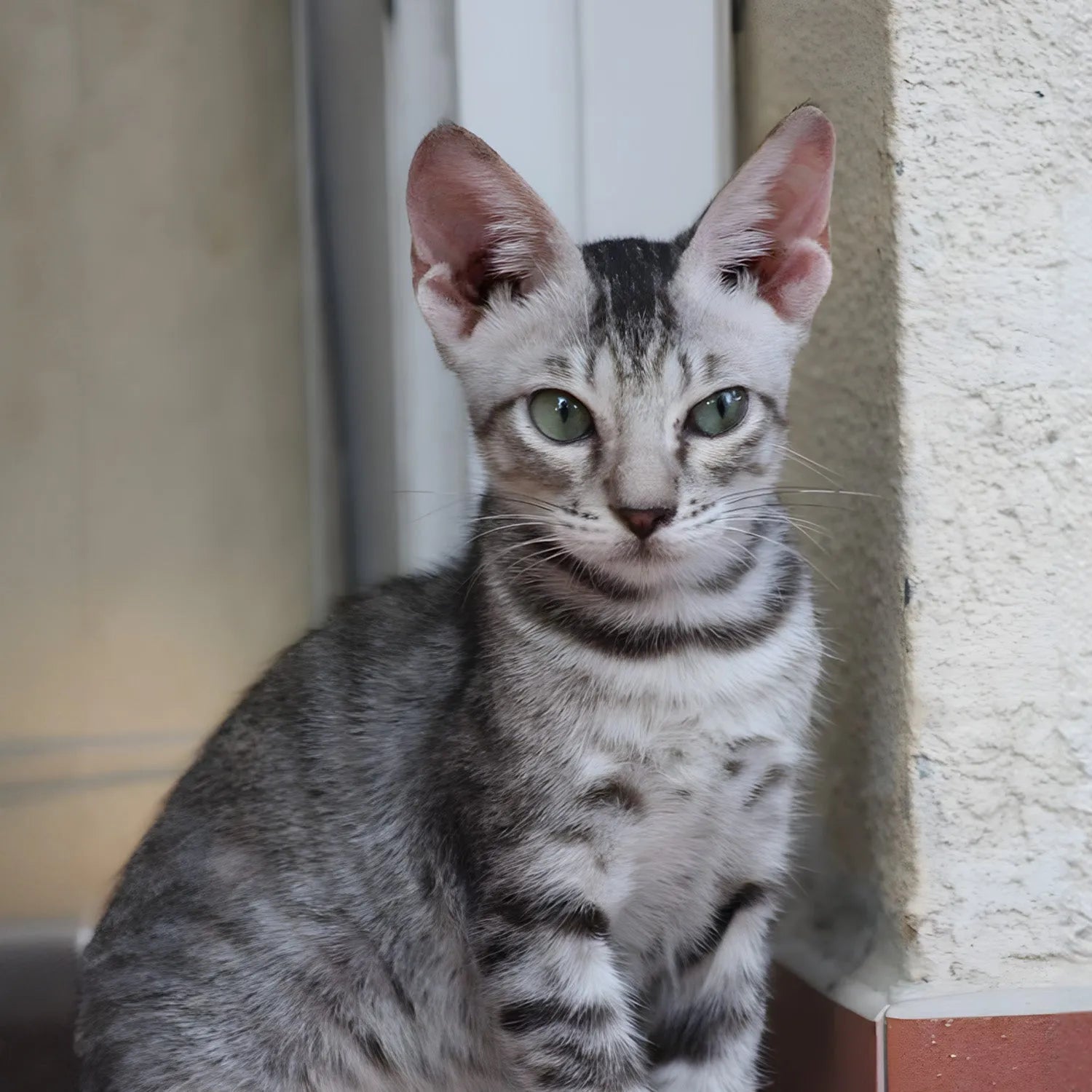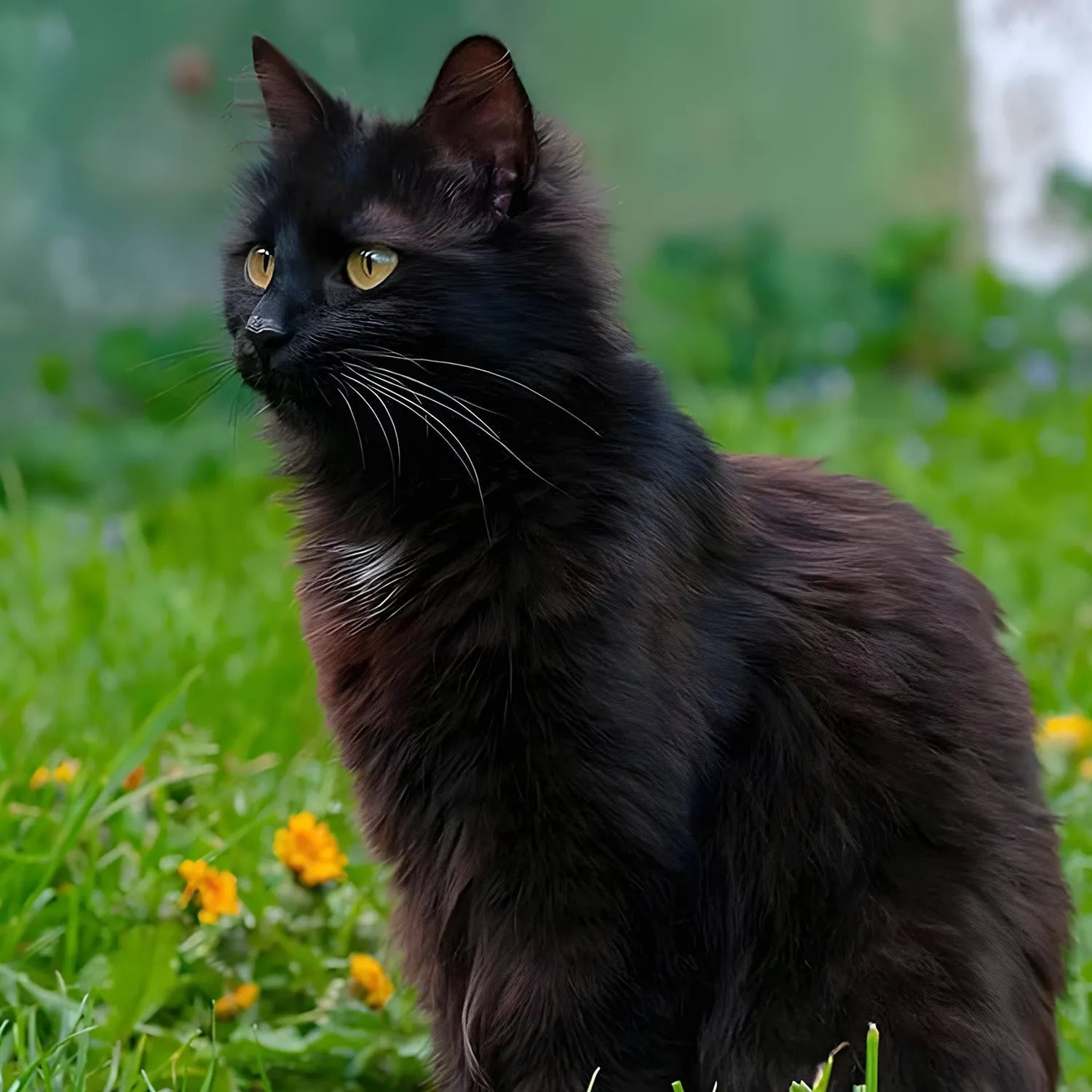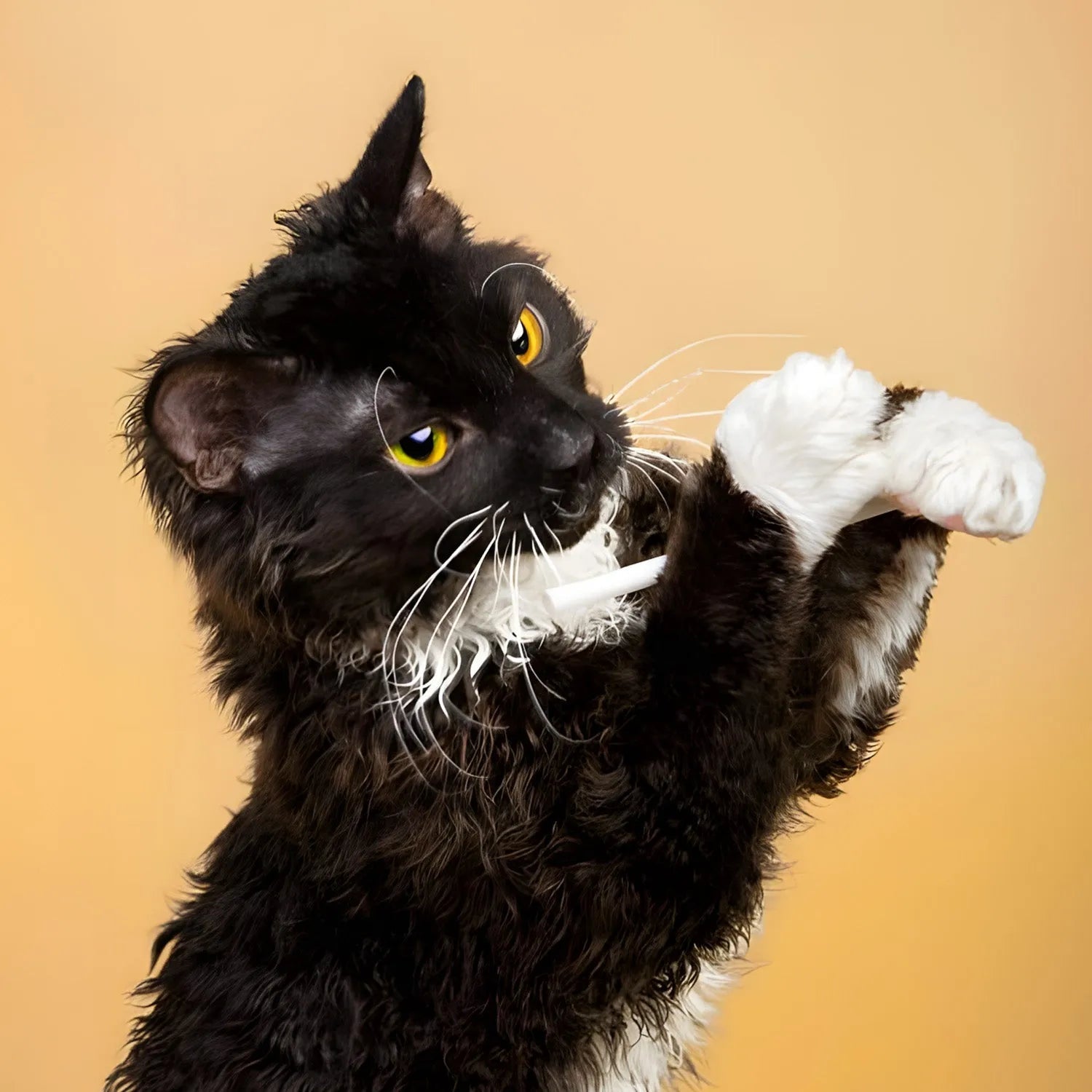Lykoi: The Mysterious Werewolf Cat with a Heart of Gold
Introduction
The Lykoi cat, often called the "werewolf cat," is one of the most unique-looking breeds in the world. With its partially hairless, patchy coat and intense eyes, the Lykoi captures attention instantly. But don’t let its wild appearance fool you—this breed is known for its loving, playful, and loyal nature. The Lykoi is a relatively new breed, having emerged in the early 2000s, but it has quickly become a favorite among cat enthusiasts who appreciate its distinctive looks and affectionate personality. In this blog, we’ll explore the Lykoi cat’s lifestyle, behavior, grooming needs, trainability, and how it interacts with humans and other pets.
Ratings (1-5)
-
Environmental Adaptability: 4
-
Food Consumption: 3
-
Need for Companionship: 5
-
Trainability: 5
-
Tolerance of Children: 4
-
Ease of Domestication: 5
History and Origins
The Lykoi cat is a relatively new breed that originated in the United States in 2010. The breed emerged naturally when a genetic mutation appeared in domestic shorthair cats, giving them a patchy, partially hairless coat that resembled that of a werewolf. Breeders began selectively breeding these cats to maintain the unique coat and appearance, and the Lykoi was officially recognized as a breed in 2011. The word "Lykoi" comes from the Greek word for "wolf," which reflects the cat’s distinctive, wolf-like appearance. Despite its wild look, the Lykoi is 100% domesticated, with no wildcat lineage, and it quickly gained popularity for its affectionate and loyal nature.
Physical Characteristics and Colors
The most distinctive feature of the Lykoi is its patchy, sparse coat that gives it a wild, werewolf-like appearance. The coat is made up of a mix of hairless patches and areas with sparse, coarse fur, which can change throughout the cat’s life. Some areas may become more or less covered with fur as the cat ages. The Lykoi’s fur is typically black or black roan, giving it a salt-and-pepper look. The breed’s eyes are large, round, and typically gold or yellow, giving the Lykoi an intense, alert expression. The Lykoi has a lean, muscular body, adding to its wild appearance, but it is also graceful and agile, making it a cat that moves with ease and curiosity.
Lifestyle and Behavior
Despite their wild appearance, Lykoi cats are incredibly affectionate and form deep bonds with their human families. They are social cats that love to be involved in their owners' daily activities, often following their humans from room to room, eager to be part of the action. Lykoi cats are known for their playful nature and enjoy interactive toys, puzzle games, and activities that challenge their minds and bodies. They are also known for their hunting instincts and enjoy games that mimic hunting, such as chasing toys or pouncing on objects. Lykoi cats are curious and adventurous, often exploring every nook and cranny of their environment.
Trainability and Intelligence
Lykoi cats are highly intelligent and can be trained to follow commands, perform tricks, and even walk on a leash. They respond well to positive reinforcement techniques, such as treats and praise, and enjoy mental challenges that stimulate their minds. Because of their natural hunting instincts, Lykoi cats love interactive toys and games that involve chasing or pouncing on objects. Training sessions with Lykoi cats should be engaging and fun, as they enjoy learning new things and thrive on mental stimulation. Their intelligence, combined with their affectionate nature, makes them a joy to train and interact with.
Social Behavior and Human Interaction
Lykoi cats are incredibly social and form strong bonds with their human families. They are affectionate cats that love to be involved in every aspect of their owner’s life, often seeking out attention and companionship. Lykoi cats are known for their loyalty and will often follow their owners around the house, wanting to be part of whatever is happening. Despite their strong bonds with their owners, Lykoi cats are not overly clingy and are independent enough to entertain themselves when left alone. They are also known for their gentle and friendly nature, making them excellent companions for individuals or families who want a loving and loyal pet.
Compatibility with Children and Other Pets
Lykoi cats are generally good companions for children due to their playful and tolerant nature. They enjoy interactive play and are generally patient with children’s antics, provided they are treated with respect. Additionally, Lykoi cats tend to get along well with other pets, including dogs, as long as they are properly introduced. Their sociable and adaptable nature allows them to integrate well into multi-pet households, and they often enjoy the company of other animals as much as they do humans. Lykoi cats are known for their ability to form strong bonds not only with their human families but also with other pets in the household.
Grooming and Care
The grooming needs of a Lykoi cat are relatively minimal, despite its unique coat. Because the Lykoi has a sparse, patchy coat, it does not require as much grooming as some other breeds. However, regular brushing can help remove loose hairs and keep the coat looking healthy. Bathing may be needed occasionally, as the Lykoi’s lack of full fur coverage can lead to oil buildup on its skin. Regular dental care, ear cleaning, and nail trimming are also important to maintain their overall health. Lykoi cats enjoy the bonding time that grooming sessions provide, and it can be a great way to strengthen the bond between cat and owner.
Health and Lifespan
Lykoi cats are generally healthy, but as with all breeds, they can be prone to certain genetic conditions. However, since the Lykoi is a relatively new breed, breeders are still working to understand any long-term health concerns. Regular veterinary check-ups and a balanced diet are essential to maintaining their health. With proper care, Lykoi cats can live up to 12-15 years or more. Regular monitoring and preventive care are important to ensure a long and healthy life for your Lykoi cat.
Environmental Adaptability
Lykoi cats are adaptable and can thrive in various living environments, whether in a small apartment or a larger home. They are particularly well-suited to indoor living, where they can enjoy a stimulating environment with plenty of interactive play. Lykoi cats are known for their resilience and can adjust well to different climates and household settings. Their adaptable nature makes them well-suited to a wide range of living conditions, but they thrive best in homes where they can receive plenty of attention and interaction from their owners.
Feeding Requirements
A balanced diet is crucial for maintaining the Lykoi cat's health and energy levels. High-quality cat food that is rich in protein is recommended. Fresh water should always be available. Because Lykoi cats are active and playful, they may require more calories than less active breeds to support their energy levels. Consult your veterinarian for specific dietary recommendations based on your cat's age, weight, and health needs. Monitoring their diet to prevent obesity is important, as Lykoi cats can be prone to overeating if not properly managed.
Conclusion
The Lykoi is a truly unique breed that brings mystery, beauty, and affection to any household. Their strong bonds with their human companions, combined with their playful and adventurous nature, make them wonderful pets for families and individuals alike. If you're looking for a cat that will form a deep, loving connection with you and provide years of companionship, the Lykoi might be the perfect fit for you.
For more information about other cat breeds and pet care tips, stay tuned to our blog!
References:
-
Thompson, M. (2021). "The Mysterious and Affectionate Lykoi Cat." *Journal of Feline Studies*, 35(3), 201-215.
-
Richards, A. (2020). "Caring for Your Lykoi Cat: A Comprehensive Guide." *Cat Lover’s Magazine*, July issue, pp. 30-40.
-
Harris, E. (2019). "Health and Wellness in Lykoi Cats." *Veterinary Journal*, 79(2), 123-137.


